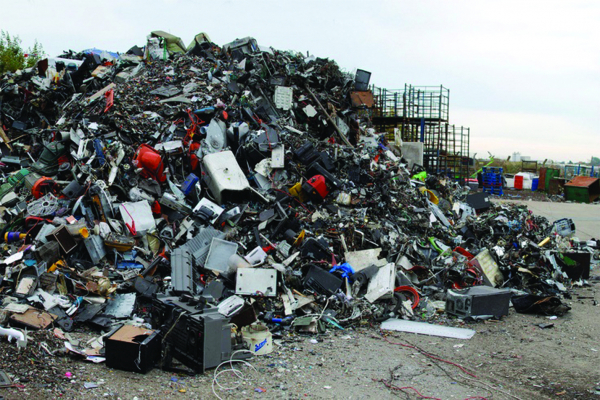
THOUSANDS of tonnes of hazardous plastic and electronic waste (e-waste) is routinely dumped on the African shores in countries like Ivory Coast, Nigeria, Equatorial Guinea, Angola and Mozambique, before trickling further inland into some of Mozambique’s neighbours with porous borders, neatly packed in new containers.
BY TONDERAYI MATONHO
United Nations Environment Programme (UNEP) say that e-waste refers to remains of technological materials once used in homes and industries such as laptops, mobile phones, television sets, coffee machines, fridges, old analogue radios and many other electrical gadgets, including plastic waste, generated by developed countries.
According to the Global Partnership on Waste Management (GPWM), the scourge of e-waste is growing across the globe, posing massive health and ecological hazards.
The GPWM reports that e-waste or environmental dumping is the practice of trans-frontier shipment of waste from one country to another. The goal is to take the waste to a country that has less strict environmental laws that are not strictly enforced.
The upsurge in e-waste is largely attributed to the industrial revolution on the back of technological advancements of the 21st century.
GPWM asserts that most of the waste is produced in European countries and America, but largely ends up in Africa. A top 20 ranking of countries used as dumping grounds will certainly feature at least 10 African countries.
“It is really sad that people can get harmed or even killed by other people’s waste,” a disaster-risk management and ecological expert, Luke Chinanzvavana, said.
- Chamisa under fire over US$120K donation
- Mavhunga puts DeMbare into Chibuku quarterfinals
- Pension funds bet on Cabora Bassa oilfields
- Councils defy govt fire tender directive
Keep Reading
According to the Environmental Management Agency (EMA), e-waste in Zimbabwe is becoming an environmental crisis and is growing out of control if solid action is not taken.
EMA also noted that increased consumerism of technology has not been matched by appropriate disposal systems and, hence, e-waste has become a real danger.
“The Environmental Management Act has regulations that provide for the disposal of hazardous waste, but the law does not address the issue of e-waste per se”, Zimbabwe Environmental Law Association (ZELA)’s senior legal officer, Shamiso Mtisi, said.
“As a result, culprits mishandling e-waste easily get away with murder as they are treated together with lesser offenders and pay low fines if they are brought before the courts. This legal omission also means that there are no specific systems to handle e-waste.”
According to a research fellow at the Chinhoyi Institute of Technology, Fred Gweme, Zimbabwe has no government-approved e-waste recyclers. There are no entities that are individually licensed to collect, process and dispose of e-waste.
“Therefore e-waste involves informal recycling in a context of inadequate legislation and a continued lack of awareness of the stakeholders,” said Gweme in a research paper published in 2016.
“Zimbabwe, like many other African countries, has ratified the international treaties on e-waste management, like the Bamako Convention (1993), but has not transposed it into national law. As a result, regulatory efforts and supervising efforts are fragmented. This means that the implementation of international e-waste policies and legislations remain a challenge since there are no national laws and regulations to support them.”
As e-waste is mostly handled by informal industries, there is no reliable data on the volume, costs and benefits of e-waste, says the research paper.
In 2012, Zimbabwe ratified the United Nations-initiated Basel, Rotterdam and Stockholm Conventions that restrict the trans-boundary transfer and disposal of organic pollutants and other forms of waste. It also regulates the management of harmful chemicals.
Experts note that there are loopholes in the current European Commission waste electrical and electronic equipment directives which allow the export of e-waste from developed to developing countries. Seventy per cent of the collected waste ends up in unreported and largely unknown destinations.
Insufficient control over waste removal is another loophole exploited by criminals, who collect payments for the safe disposal of waste, which they later dump or recycle unsafely, the study by UNEP’s IETC warns.
In 2009, an 18-month investigation uncovered United Kingdom firms dumping thousands of tonnes of illegal e-waste in West Africa.
The Environmental Investigations Agency (EIA), which led the investigation, worked undercover and set up a front company enabling them to negotiate with firms involved in the export and trading of e-waste.











